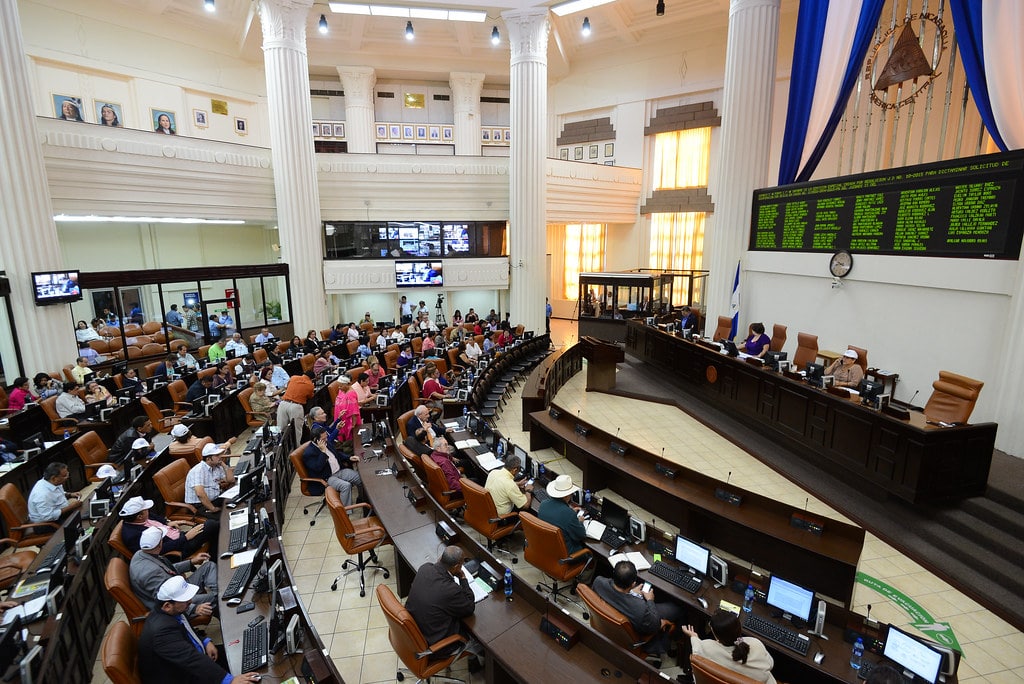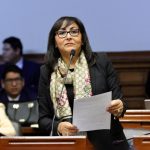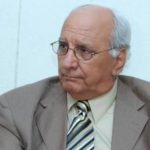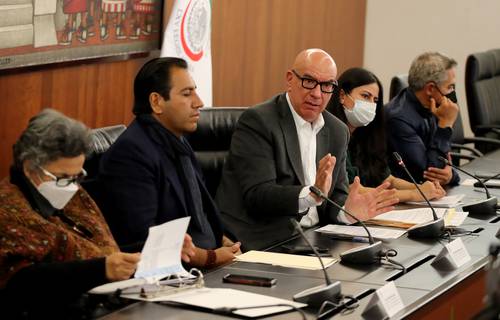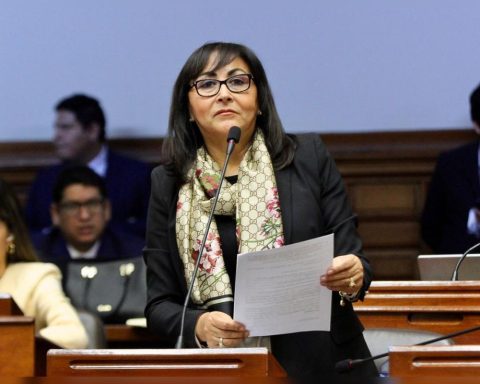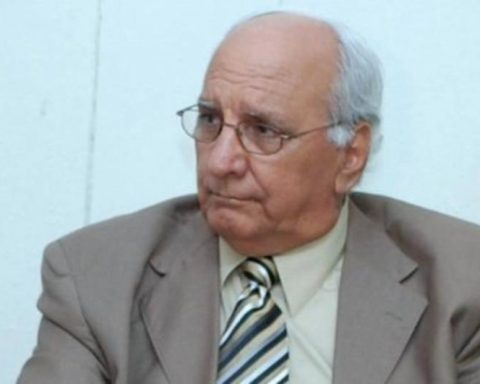A post-election poll by CID Gallup, sponsored by CONFIDENTIAL, held between December 5 and 13, revealed that on November 7 Ortega would have received only 27% of the votes and not the 75.8% assigned by the Supreme Electoral Council (CSE), while four other collaborationist parties accounted for 38% of the vote.
However, in the new National Assembly, which will be established this Sunday, January 9, the Sandinista National Liberation Front (FSLN) distributed 75 out of a total of 91 deputies, enough to pass laws or reform the Political Constitution unilaterally, as happened in the previous legislative period and which, as deputy Gustavo Porras warned, will continue to happen in the legislative period 2022-2027.
During the previous legislature, the Sandinista caucus —with 70 deputies— passed without questioning a series of laws that they restrict the rights of Nicaraguans and they paved the way for the fourth reelection of Daniel Ortega, who one day after the inauguration will take the promise of law for his fourth consecutive presidential term and the fifth in his entire political career.
Now, with 75 Sandinista legislators, “what remains for us is to be consistent,” Porras warned during the closing session of the previous legislative period, on December 15, referring to the laws they passed to criminalize those who oppose the regime. of Ortega and Murillo. “VWe are developing our dignity as Nicaraguans, that is important, and little by little we are advancing in the cohesion of Nicaraguans, history is like this … and that is the way, we are going forward, “he said.
Porras, now former president of the National Assembly, is one of the deputies re-elected by the regime and one of the main political operators of the vice president, Rosario Murillo. It is expected that he will also be reelected as president of the Assembly, despite the fact that he has been sanctioned by the United States, Canada and the European Union; Since, in July 2019, the regime reformed Law 606 “Organic Law of the Legislative Power” and Law 290 “Organization, Competence and Procedures of the Executive Power”, with the sole objective of keeping him in office.
The new deputies
As a result of elections lacking in legitimacy, the FSLN now has five new seats in the National Assembly. The first of them will be occupied by Amada Pineda, who is considered a “Sandinista heroine” and has been promoted within the FSLN for denouncing the murder of her son Francisco Ramón Aráuz Pineda during the 2018 protests. Since then, she has presided alongside Ortega and Murillo the act of the 39th anniversary of the Sandinista Revolution and has participated in multiple party events.
Political commentators also stand out among the new Sandinista deputies Adolfo Pastrán and Moisés Absalón Pastora, who have become known for spreading the regime’s propaganda through their programs on state television.
Pastrán currently directs an informative bulletin in which he promotes government projects, disseminates the “benefits” of the regime and even carries out “economic analyzes” in the regime’s propaganda media that cite him as a source of consultation.
Pastora, for her part, presents a radio and television program in which she insists on disqualifying those who point to violations of the human rights of Nicaraguans and eventually interviews government officials.
The sanctioned
Meanwhile, the majority of the elected deputies repeat in office, some – even – have three decades as legislators, They are known political operators of the FSLN and three of them are sanctioned by the international community for being considered “accomplices” in the human rights violations committed in Nicaragua.
In June 2019, Congressman Gustavo Porras was sanctioned by the United States Department of the Treasury, an entity that describes him as “the most important political operator” of Ortega, since “it exercises significant control over the Social Security Institute and the Ministry of Health with the approval of Vice President Rosario Murillo ”. It has also been sanctioned by Canada and the European Union.
Other sanctioned persons who repeat in office and maintain their legislative immunity are: Wálmaro Gutiérrez, for being the promoter of the Law for the Regulation of Foreign Agents, and Edwin Castro Rivera, head of the FSLN bench. Both completed 25 years as deputies. The sanctioned legislators are prohibited from any transaction in Canada, the United States and the European Union. Nor can they participate in the financial system and do business with citizens of those countries. In addition, those sanctioned are declared inadmissible.
The usual
Also re-elected were Wilfredo Navarro Moreira, who has been a legislator since 1997; Maritza Espinales, current vice president of the Assembly; Melba Sánchez, José Figueroa, Carlos Emilio López, Patricia Sánchez, Iris Montenegro, Guillermo Arce Castaño, Gladys Báez, Filiberto Rodríguez, Benita Arbizú, José Ramón Sarria, Irma Dávila, Juan Ramón Obregón, Jenny Martínez, among others.

Among the ten deputies of the PLC, five repeat in office. Walter Espinoza, who was the presidential candidate of the PLC and was assigned a constitutional deputation; María Haydée Osuna, president of the party and who helped the FSLN to strip the Citizens for Freedom (CxL) party of its legal status; Lesther Flores, secretary of Municipal and Departmental Affairs; Roberto José Lira and Reynaldo Altamirano.
They will also repeat as national deputies: the president of the ALN, Alejandro Mejía Ferreti; Pedro Joaquín Treminio, from the PLI; Wendy María Guido, who belonged to the extinct Conservative Party (PC) and was now reelected by APRE; and Brooklyn Rivera, from the YATAMA regional party.
From 2007 to 2022
The words of the deputy Porras indicate the continuity of a system imposed in the last 15 years, in which Sandinismo went from having 38 councils in 2007 to assigning 75 seats in 2021, through elections without political competition and marked as “illegitimate” by the international community.
In contrast to the growth of the Sandinista caucus, which has doubled its seats in the last 15 years, the opposition parties have practically been eliminated from the Legislative Branch. In 2007, the Constitutionalist Liberal Party (PLC), the Nicaraguan Liberal Alliance (ALN) and the Sandinista Renovation Movement (MRS) added 52 deputies, but in the following votes the Supreme Electoral Council (CSE) was assigning them fewer deputies, dismissing legislators, and canceling and reassigning legal entities until they become collaborationist parties.
For this legislative period that is about to begin, the CSE only assigned 16 seats to parties other than the FSLN, although these do not represent the political opposition. The PLC, ALN, Alianza por la República (APRE), Partido Liberal Independiente (PLI) and the regional party YATAMA, are part of a group of parties that usually appear in electoral periods, and never have the real intention of challenging the power of the day. Its role in politics is to cooperate with the ruling party so that it remains in power, and to settle for reimbursements, minimum fees and irrelevant charges at the expense of the public purse, according to complaints from civil society and the organized opposition based on the civic protests of 2018.
When referring to these parties with minimal parliamentary representation, Deputy Porras does so promptly: “This board of directors, which has representatives from different political parties, has been cohesive at work, has been respectful and consistent at work, as well as the bench that are present here, because there is a mechanism and when there is a bench that says it is going to oppose, to oppose it. Those are the spaces, those are the mechanisms, and if they say they are not going to vote, then they should not vote ”, he stressed.
They passed laws restricting freedoms
During the previous legislature, the National Assembly, controlled by Ortega, approved a dozen laws that, among other things, segregate Nicaraguans, threaten freedom of expression, inhibit political participation and allow illegal detentions. Then he continued with the reform of the Electoral Law, the appointment of electoral magistrates of his party and ended with the cancellation of the legal status of 58 Non-Governmental Organizations.
Among the changes promoted by Ortega, from the parliament, is a constitutional amendment that allows life imprisonment for “hate crimes” defined in general terms. Also, the Law for the Regulation of Foreign Agents, considered a violation of the rights of Nicaraguans, because it obliges both organizations and individuals who receive funds from abroad, to register as “agents” before the Ministry of the Interior (Migob), violating their political rights of participation, among other public freedoms.
In addition, the Special Cybercrime Law, known as the “Gag Law,” was approved, which aims to regulate content on the Internet and silence the critical voices of Ortega’s opponents who make complaints about human rights violations in Nicaragua. They also approved the “Law for the defense of the rights of the people to independence, sovereignty and self-determination for peace”, known as Sovereignty Law, which has been used to imprison opponents and nullify political competition in past elections.
The Ortega deputies also approved a reform and addition to Law 406, of the Nicaraguan Criminal Procedure Code, to expand from 48 hours to 90 days the period for which a person can be detained without being charged in order, according to Sandinista arguments, to carry out “deeper” investigations. Protected by this law, the Police imprisoned 67 opponents, between the end of May and mid-November 2021, kept them detained for about 90 days without being presented before a judge and now they are being processed.
In addition, in an attempt to evade the United States sanctions against regime officials accused of human rights violations or corruption, the Ortega parliament approved the reform and addition to Law 842 or “Law for the protection of the rights of consumers and users ”, with which they define the State as a consumer and therefore will now have the power to sue companies, mainly private banks that do not wish to deal with them.
This combo of punitive laws and regulations was rejected by the citizens and organizations that, without any success, appealed for unconstitutionality before the Supreme Court of Justice (CSJ). However, the then president of the National Assembly, Gustavo Porras, affirmed that they were approving “a legal scaffolding” that sought to prevent those who participated in the 2018 protests (which the ruling party describes as an “attempted coup”) from presenting themselves in the elections of November 7 last.
